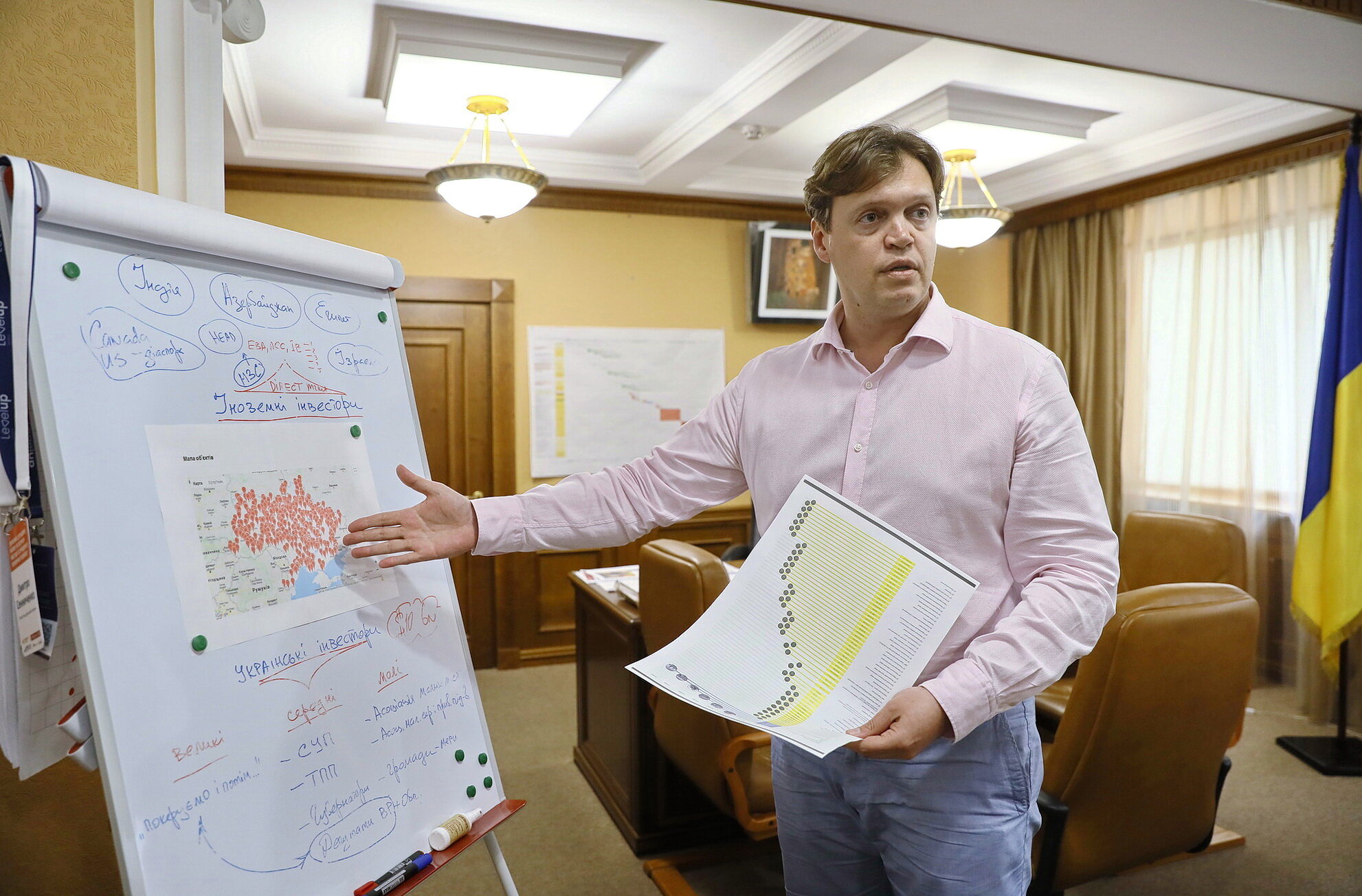Ukraine’s attempts to sell off state-owned agencies, companies and property have been slow and arduous.
After the breakup of the Soviet Union, Baltic states such as Latvia, Lithuania and Estonia privatized at a blistering rate, now possessing only a few dozen state-owned enterprises.
For Ukraine, however, the pace of progress has been much slower.
At an online presentation jointly-held by the U.S.-Ukraine Business Council and the State Property Fund of Ukraine on Oct. 13, it was revealed that the SPFU was scheduled to prepare 3,600 state-run enterprises for privatization, not including countless amounts of property and “stand-alone enterprises” such as hotels and various buildings. The 200-member council includes the Kyiv Post as a member.
The property fund, established after independence in 1991, both privatizes and liquidates state-owned assets to encourage investment, increase the state’s cash reserves, and seize misused government assets.
The fund’s preferred tool is ProZorro, an online auction platform that provides a transparent environment to ensure the corruption-free transfer of assets to reputable private individuals. All buyers undergo screening to uncover the origin of their funding and to look for links to any sanctioned persons.
The SPFU has many issues to contend with. These state-owned assets serve as a conduit for corruption by many politically connected oligarchs. As such, the fund is often met with stiff resistance to privatization efforts.
In 2019, the cost of state-ownership of assets, which are almost always loss-making, was a whopping Hr 170 billion.
Despite the COVID-19 crisis, the fund has been hard at work. It recently organized the sale of Kyiv’s famous Dnipro Hotel and some premises of the Arsenal state enterprise. Thus far, the sale of state-owned assets has added $2.76 million to the state budget.
Toxic assets and oligarchs
Despite a track of successful privatizations, issues persist.
The SPFU is attempting to attract foreign investors with a new website privatization.gov.ua, which provides information about assets in English and added transparency. Nevertheless, many assets up for sale have significant baggage.
Toxic assets, indebted assets and undetermined liabilities remain major turn-offs to international investors. To restructure toxic assets, further legislation is needed to simplify debt restructuring and fire-walling procedures.
Dmytro Sennychenko, the head of the fund, said that foreign investors were “ready to invest” but needed “better procedures, protection of rights, and laws in English.”
The head of the SPFU said that his agency was pursuing amendments to Ukraine’s fiscal and tax codes to make the needed changes.
“We have prepared very complex legislation which makes changes in 27 laws of Ukraine, including the budget and tax codes,” Sennychenko said during the presentation. “These laws should make a shortcut to really make revolutionary privatization of non-core assets.”

Dmytro Sennychenko, the head of the State Property Fund, points at the map of Ukraine with all the state assets that his agency plans to sell to private investors on June 18, 2020. (Oleg Petrasiuk)
Funding issues
The struggle of the SPFU was characterized not only as “fighting the corruption of oligarchs,” but also “fighting the bureaucracy of the government.”
According to Sennychenko, the budget of the agency had been slashed by an eye-watering Hr 245 million ($8.7 million), leaving the fund with a mere Hr 10 million ($353,000) to finance privatization over the whole year.
Sennychenko believes that’s a short-sighted move, as for every hryvnia spent on the fund’s operation, the state could receive 71 in return.
“I spent six months running around the Cabinet of Ministers, minister of finance, minister of the economy, the parliamentary committee on the budget,” Sennychenko said.
This year, the fund needs Hr 40 million ($1.4 million) to prepare assets for privatization. If successful, the deals will bring at least Hr 12 billion ($424 million) to the state budget next year.
“So we are now fighting with the budget committee,” Sennychenko said.
Not only is the SPFU at loggerheads with the government, but also the Ukrainian parliament, or Verkhovna Rada. In line with COVID-19 restrictions, large-scale privatization projects were frozen by the parliament. Now, the fund is demanding for these restrictions to be lifted to make way for large-scale projects, which could attract billions in investment and sales.
Large-scale privatization projects, such as that of the United Mining Chemical Company, Odesa Portside Plant, Elctrovazhmash and First Kyiv Machine-Building Plant, will only proceed once these restrictions are lifted.
The fund was, nevertheless, excited to present its assets for the privatization of Ukraine’s recently defunct monopoly on alcohol, Ukrspirt, and energy distribution company, Oblenergo. They hope that these assets will attract investors from across Europe.
The U.S.-Ukraine Business Council praised the efforts of the SPFU and described the аund’s forecast as “by far the best and most positive presentation we’ve heard.”
“The future of Ukraine lies in the private sector,” said Morgan Williams, the president of the USUBC.
